


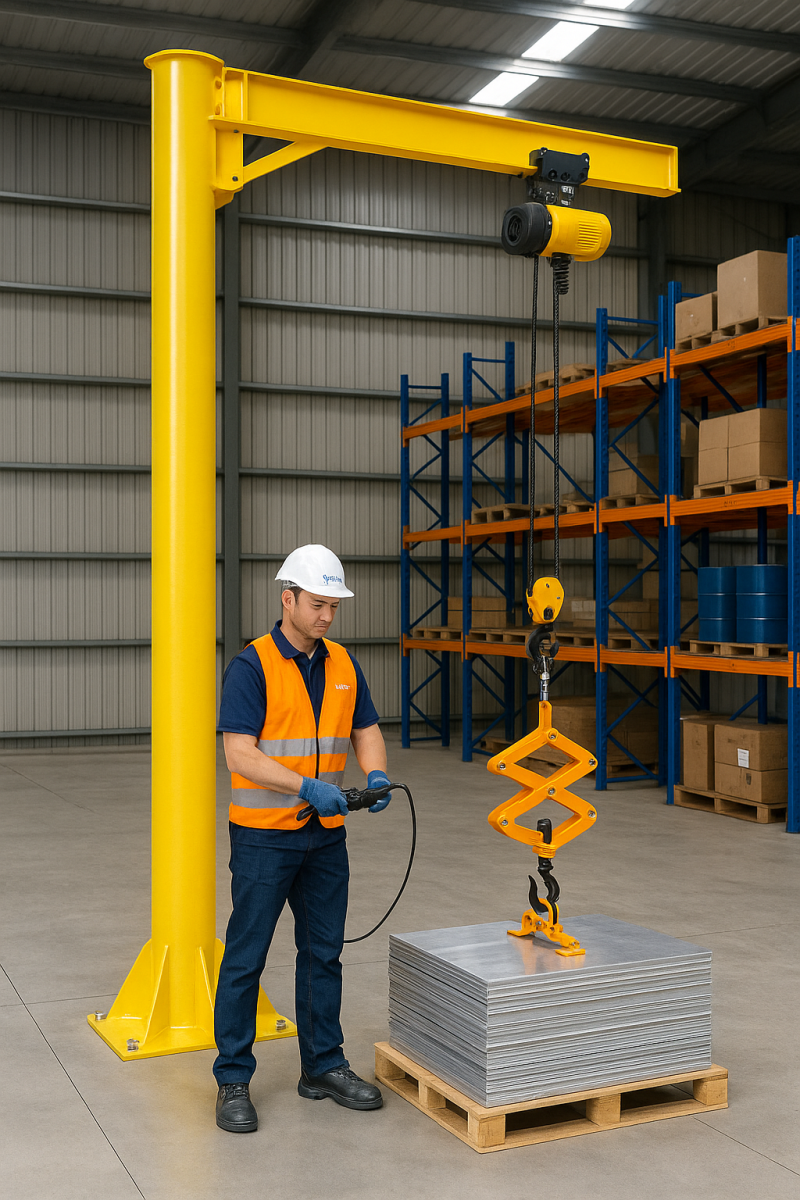
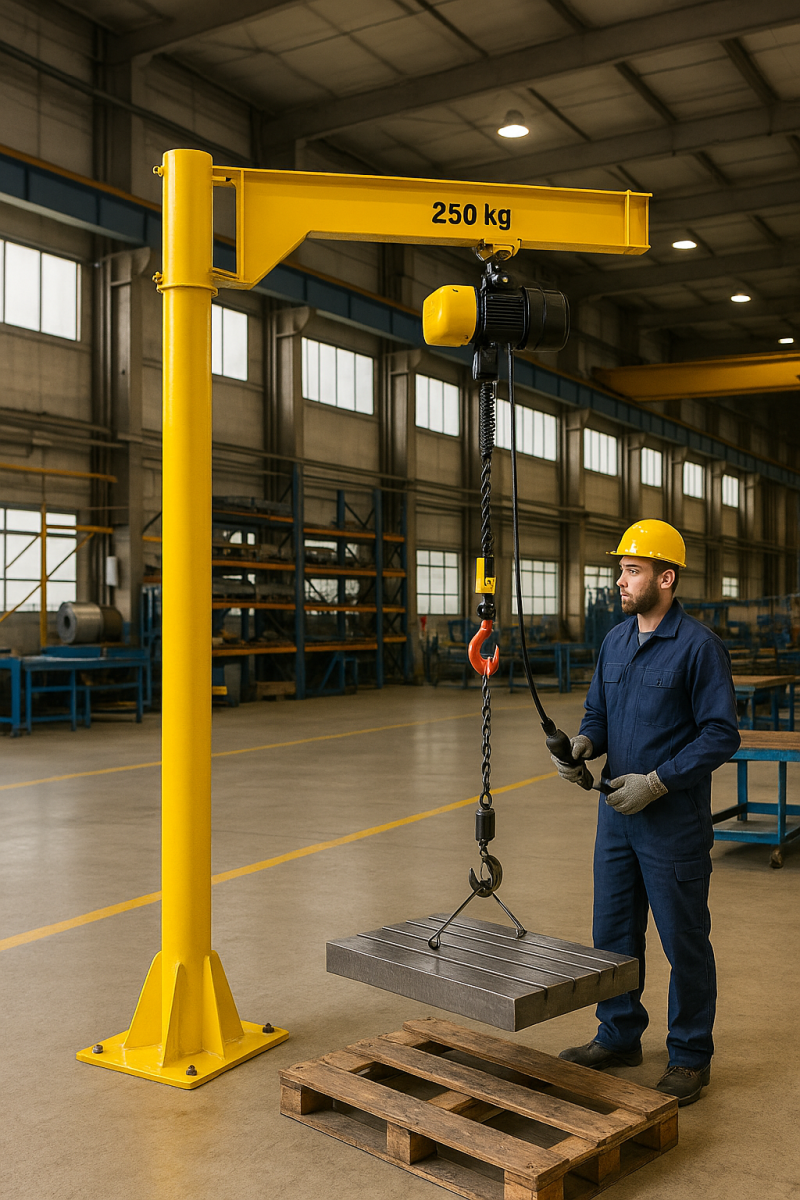
Their simple yet robust design provides exceptional support for repetitive lifting tasks in tight or structured spaces. In today's fast-paced industrial landscape, lifting solutions must be compact, efficient, and versatile.
Whether you operate a manufacturing facility, a logistics warehouse, or a maintenance workshop, understanding the role of jib cranes is essential. In this article, we’ll break down their structure, usage, types, and advantages—helping you decide if a jib crane is the smart solution your operation needs.
Explore how Jib cranes play an important role in your warehouse and why they continue to be indispensable in industrial applications.
A jib crane is a type of lifting device featuring a horizontal arm (the jib) mounted to a vertical support. It allows for circular or semi-circular coverage, offering swift, precise movement of loads without occupying much floor space.
The typical movements include:
Lifting and lowering using a hoist
Rotation of the jib arm (180°, 270°, or full 360°)
Trolley travel along the jib’s length
These features make jib cranes ideal for moving parts between stations, loading/unloading trucks, and servicing machinery.
Learn more about how jib cranes work in many industries and why their design suits both manual and automated setups.

Choosing the right crane starts with understanding its configuration and capabilities. Each jib crane type is engineered to fit specific applications and spatial constraints:
Mounted on a reinforced concrete base
Offers full 360° rotation
Can handle heavier loads independently of building structure
Great for open floorplans or outdoor yards
Bolted to structural walls or columns
Provides 180° to 200° rotation
Perfect for production lines and limited-space workstations
Eliminates need for floor support
Suspended from ceiling beams
Maintains clear floor space
Common in cleanroom and assembly environments
Works well with overhead conveyance systems
Dual-arm configuration provides unmatched maneuverability
Navigates around obstructions and tight corners
Ideal for precision tasks and small work areas
Compatible with robotic or smart hoist control
Mounted on a fixed post or column
Supports light-duty repetitive lifts
Common in maintenance bays or tool rooms
Cost-effective and easy to relocate
For clarity on when to choose which, see Jib cranes vs overhead cranes.
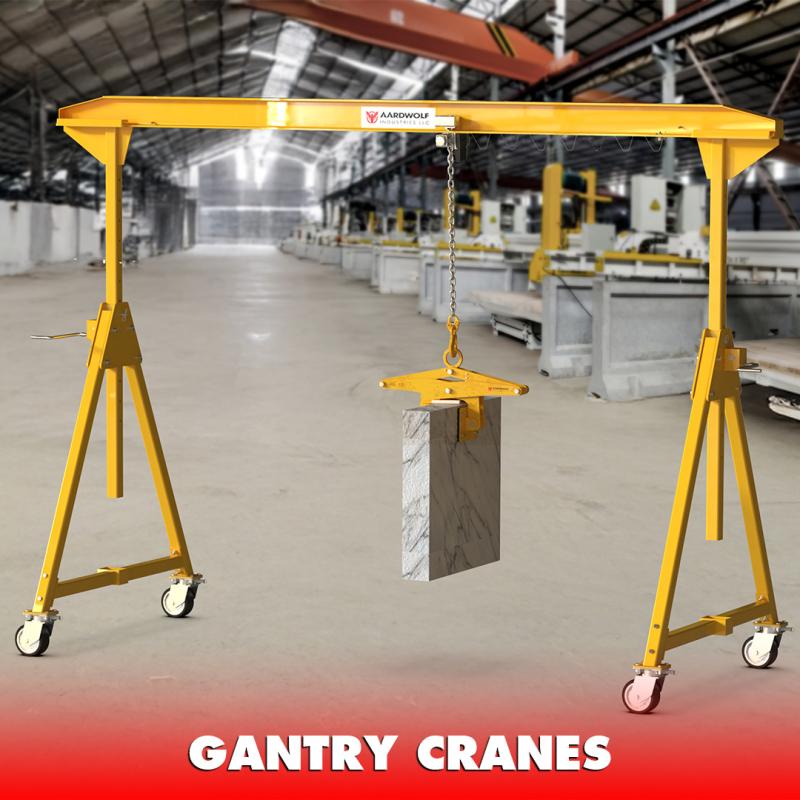
Unlike gantry or bridge cranes, jib cranes require no floor rails or runway beams. Wall and ceiling-mounted models are especially useful where compact lifting solutions are a must.
Jib cranes are relatively simple to install and often require less engineering work than overhead systems. They offer excellent ROI for companies looking to automate or scale without breaking the bank.
See real-world efficiency in action with this jib cranes solution for tight workstations.
Equipped with modern features like:
Soft-start hoists
Overload sensors
Emergency stop buttons
Limit switches
...jib cranes are operator-friendly and reduce accident risks.
With growing interest in Industry 4.0, many businesses are integrating smart lifting systems. Modern jib cranes support:
Programmable controls
IoT-based diagnostics
Remote operation via handhelds or control panels
Explore why Why Automation Matters for Modern Jib Cranes in your operation.


Jib cranes are widely adopted for their adaptability and reliability. Typical applications include:
Manufacturing: Moving materials between machines
Assembly lines: Assisting in part positioning or sub-assembly
Warehouses: Supporting pick-and-pack or dispatch processes
Maintenance areas: Lifting engines, pumps, and mechanical parts
Construction sites: Positioning steel parts or electrical equipment
They are particularly effective when integrated with hoists, trolleys, and automated material handling systems.
While selecting a crane type is important, the broader goal is to create a well-optimized lifting environment. Your decision should consider:
Load weight and frequency
Workspace dimensions
Rotation requirements (180°, 270°, 360°)
Available support structures
Integration with existing processes
Keep in mind that how to choose the right crane is just the first step. Correct installation and configuration ensure long-term reliability.
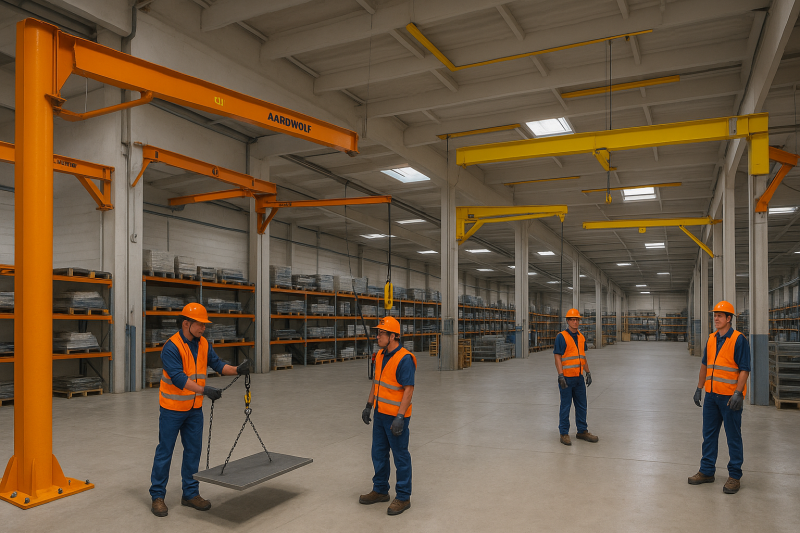
A mid-sized distribution center in Melbourne replaced outdated manual handling systems with four wall mounted jib cranes and two articulating jib cranes. Each unit was installed over a weekend with minimal disruption. The result:
50% increase in daily loading speed
40% drop in handling-related strain injuries
Payback period: under 9 months
The flexibility of wall and articulating systems made them ideal for areas with shelving, conveyors, and fixed machinery.
Jib cranes may appear simple, but their utility is far-reaching. They provide a unique blend of affordability, flexibility, and performance in lifting applications of all kinds. Their modular design makes them perfect for small upgrades or large-scale logistics operations.
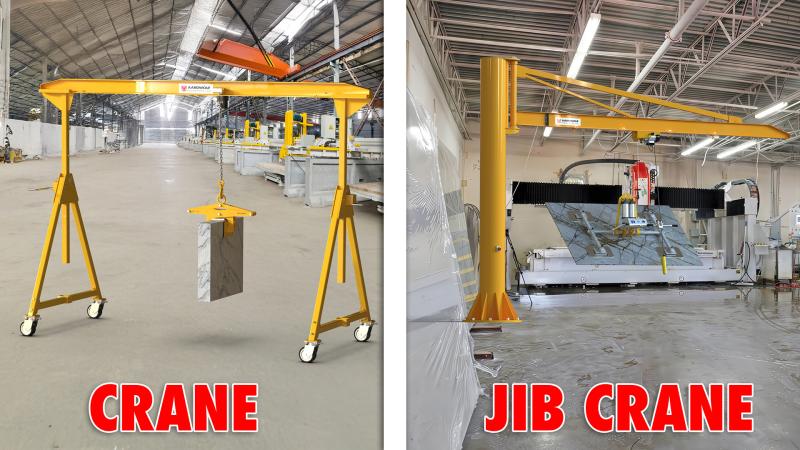
Whether you’re looking for a low-cost lift assist tool or a smart automation-ready system, Jib Cranes provide the foundation for scalable success.
Take the next step in transforming your facility and see firsthand how Jib cranes play an important role in your warehouse.
References
1. How to operate a Jib Cranes safely
3. Over brace jib crane wall mounted
5. Is a Jib Crane a Gantry Crane
6. Articulated Jib Crane Wall Mounted
8. Manual Counterbalance Crane
10. Over Braced Jib Crane Column Mounted
11. Powered counterbalance Crane
Sign up to receive the latest info on new Aardwolf products, special offers and more.
By signing up you agree to receive emails from Aardwolf with news, special offers, promotions and other information. You can unsubscribe at any time.